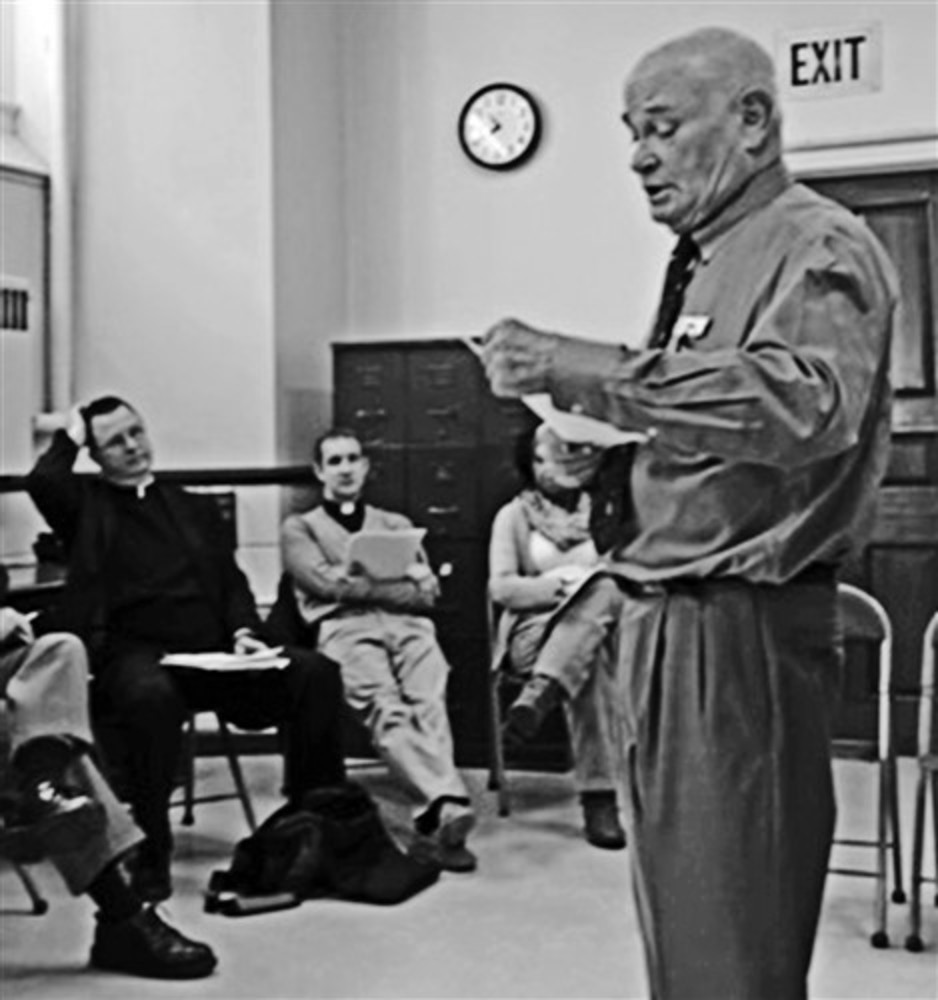Faith leaders get lessons in advance care
 Rabbi Jim Rosenberg speaks to the group.
Rabbi Jim Rosenberg speaks to the group.
Faith leaders should be a critical source for end-of-life information. That was the message to the 67 leaders who attended an interfaith advanced care training program March 24. The program was put together by the interfaith community in conjunction with C-TAC, the Coalition to Transform Advanced Care. The purpose was to teach the proper methods to help those who face end-of-life situations.
The training program, which included sessions on spiritual, ethical, medical and legal perspectives facing individuals and families, opened with a pre-recorded message from Sen. Sheldon Whitehouse who was unable to attend. Whitehouse has been an advocate for end-of-life care legislation in Congress. In his message Whitehouse said that this is an important issue. Everyone will have to face this issue at one time or another with loved ones.
Dr. Michael Fine, outgoing director of the Rhode Island Department of Health, reinforced the senator’s concern that people in treatment should get the best care for their individual needs, including advanced, or end of life care. Fine said there are human implications that are not always looked at properly. The medical industry should do “for” the person instead of “to” the person. The system, he said, too often rewards the medical community for what they do “to” the patient. This is not always what is necessary for the person.
Rabbi Jim Rosenberg led the discussion on the spiritual issue, focusing on Psalm 88; A Poem for the Winter Solstice. Attorney Maureen Glynn spoke on the issue of legal documents that assist with advanced care situations such as the Do not Resuscitate (DNR) orders.
Dr. Myles Sheehan, SJ, who did his residency in Internal Medicine at Beth Israel Hospital in Boston, gave the keynote address. Sheehan discussed what he called the trajectory of dying and described the difference between palliative and hospice care. Too often, he said, the patient is the actor in a death. The person and the family need the support of the community. This is where clergy can be most helpful. The problem however, is that many members of the clergy need to learn how to deal with this issue.
Rabbi Barry Dolinger from Congregation Beth Sholom, Rabbi Ethan Adler of Congregation Beth David and the Jewish Seniors Agency and Rabbi Sarah Mack of Temple Beth-El were instrumental in setting the agenda for the program which the Rhode Island State Council of Churches facilitated. The program was held at Phillips Memorial Church in Cranston.
MARTY COOPER is the Community Relations Director for the Jewish Alliance.







